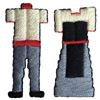 Every piece of vintage clothing that is given to a museum is being studied and analyzed by the museum experts before going on display. Here is a very interesting and pretty rare video of such discernment. The museum workers discuss a Victorian period (circa 2nd half of the 19th century) kid’s dress and cape. They’re trying to determine who this garment could belong to, what it is made from, what occasions it was used for, and etc. Let’s join them and look at this adorable little child’s dress and tiny ornate cape that went with it.
Every piece of vintage clothing that is given to a museum is being studied and analyzed by the museum experts before going on display. Here is a very interesting and pretty rare video of such discernment. The museum workers discuss a Victorian period (circa 2nd half of the 19th century) kid’s dress and cape. They’re trying to determine who this garment could belong to, what it is made from, what occasions it was used for, and etc. Let’s join them and look at this adorable little child’s dress and tiny ornate cape that went with it.
This is a lined dress. The material is heavy – the cotton twill. The band of another fabric around the hem and on cuffs is brocade – no doubt, that would be a leftover from somebody else's dress, worn out and used for decoration.
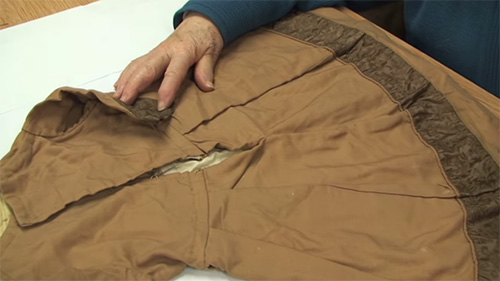
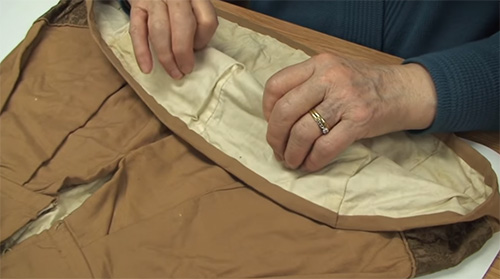
It certainly would be expected to be handed down from one sister to another or even mother to daughter. There is a certain amount of wear and tear. This garment probably belonged to a 2-year-old girl.
If to look at the inside of the dress, some of the lining looks like it's made of quite small pieces, as if they took used-up material and put it together to make the lining. Whereas other pieces are quite large.
Let’s have a look at the front of this kid’s dress. There's more brocade paneling. But it's not made into pockets, just a plain insertion, and it comes in with a pleat. There aren't any pockets.
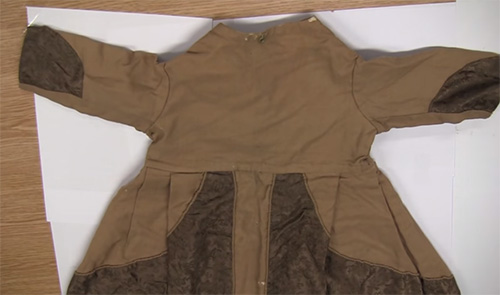
Judging by the sleeve and bodice, this is a 2-year-old’s garment. And then, looking at the length of the skirt, it would come down to the top of the child's ankle. It would be a long dress, in other words.
There’s a very lovely piping at the edge of the inserts of brocade. But only on the front inserts, not on the sleeves.
Most likely, this would be an everyday dress. You can say that from the twill, from the brocade, and from the fact that it must have been sewn using leftovers from some other garment.
Also, there’s a loop in the front of the neck. And it has something to do with the cape.

The cape definitely is a decorative addition to this outfit. It is adorned with machine-made lace. And it has two central hooks that don't go together, so these hooks went through that loop in the neckline of the dress. These hooks held the cape in place.
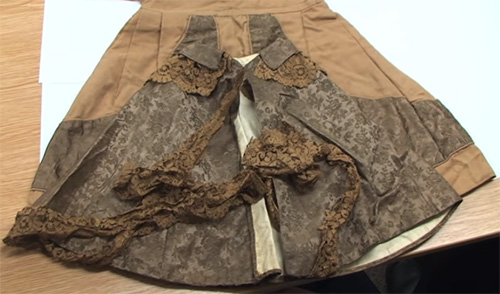
The long lace pieces on the cape probably once were stitched around the flaps and hem of the cape.
The cape is quite an unusual piece. Actually, it might have been a plain dress paired up for some special occasions with a little ornate cape.
(c)
